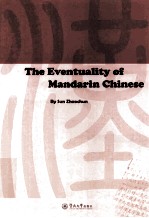图书介绍
汉语事件结构研究 英文PDF|Epub|txt|kindle电子书版本网盘下载

- 孙肇春著 著
- 出版社: 广州:暨南大学出版社
- ISBN:9787566805898
- 出版时间:2013
- 标注页数:178页
- 文件大小:22MB
- 文件页数:190页
- 主题词:汉语-语言结构-研究-英文
PDF下载
下载说明
汉语事件结构研究 英文PDF格式电子书版下载
下载的文件为RAR压缩包。需要使用解压软件进行解压得到PDF格式图书。建议使用BT下载工具Free Download Manager进行下载,简称FDM(免费,没有广告,支持多平台)。本站资源全部打包为BT种子。所以需要使用专业的BT下载软件进行下载。如BitComet qBittorrent uTorrent等BT下载工具。迅雷目前由于本站不是热门资源。不推荐使用!后期资源热门了。安装了迅雷也可以迅雷进行下载!
(文件页数 要大于 标注页数,上中下等多册电子书除外)
注意:本站所有压缩包均有解压码: 点击下载压缩包解压工具
图书目录
Introduction1
Chapter One Approaches to Eventuality:A Review4
Introduction4
1.1 Vendlerian Aspectual Classification of Verbs4
1.1.1 General Introduction to Vendler's Aspectual Classes of Verbs5
1.1.2 States9
1.1.3 Activities10
1.1.4 Accomplishments11
1.1.5 Achievements12
1.1.6 Summary14
1.2 Lexical Decompositional Approach to Eventuality16
1.2.1 Generative Semantic Approach16
1.2.2 Categorical Approach17
1.2.3 Lexical Syntactic Approach18
1.2.4 Syntactic Approach21
1.2.4.1 Huang(1991,1997)21
1.2.4.2 Lin(2001)22
1.2.4.3 Comments on Huang(1991,1997)and Lin(2001)26
1.3 Chomskyan Light Verb29
1.3.1 Origin of the Chomskyan Light Verb30
1.3.2 Development of the Chomskyan Light Verb31
1.3.3 Some Semantically-Richer Light Verbs33
1.3.3.1 Bowers'(1993)Pr33
1.3.3.2 Kratzer's(1996)Voice34
1.4 Summary35
Chapter Two Eventuality and Lexical Aspect in MC36
Introduction36
2.1 Eventuality and Aspectual Classes of Verbs in MC36
2.1.1 Previous Studies on Eventuality in MC37
2.1.1.1 Early Period37
2.1.1.2 Modern Period37
2.1.1.3 Summary38
2.1.2 Aspectual Classes of Verbs in MC38
2.1.2.1 Previous Studies38
2.1.2.2 Classification39
2.1.2.3 Event Structure of Verbs40
2.1.2.4 Summary45
2.2 Eventuality of State in MC45
2.2.1 Stative Adiectives in MC45
2.2.1.1 Properties of Adjectives in MC45
2.2.1.2 Gradable Adjectives49
2.2.1.3 Non-gradable Adjectives50
2.2.1.4 Contrast Between Gradable and Non-gradable Adjectives51
2.2.1.5 Event Structure of Stative Adjectives52
2.2.1.6 Summary52
2.2.2 Stative Verbs in MC52
2.2.2.1 Classification of Verbs in MC—Previous Studies53
2.2.2.2 Properties of Stative Verbs in MC56
2.2.2.3 Event Structure of Stative Verbs58
2.2.2.4 Unaccusative Verbs60
2.3 Eventuality of Activity in MC63
2.3.1 Properties of Activity in MC63
2.3.2 Event Structure of Activity65
2.3.3 Summary68
2.4 Conclusion68
Chapter Three Eventuality of Achievement in Mandarin Chinese69
Introduction69
3.1 Previous Studies on Achievement in MC69
3.2 Verbs of Achievement in English and MC—A Comparison71
3.3 Achievement or Accomplishment?73
3.3.1 Achievement vs.Accomplishment in English74
3.3.2 Achievement vs.Accomplishment in MC77
3.4 Achievement and Aspect Markers79
3.4.1 Achievement and Aspect Marker le80
3.4.1.1 Introduction to Aspect Marker le80
3.4.1.2 Deriving Achievement with le83
3.4.1.3 Summary84
3.4.2 Achievement and Aspect Marker dao84
3.4.2.1 Introduction to Aspect Marker dao84
3.4.2.2 Deriving Achievement with dao85
3.4.2.3 Interaction Between dao and Other Aspect Markers86
3.4.2.4 Summary91
3.4.3 Achievement and Aspect Marker zhao91
3.4.3.1 Introduction to Aspect Marker zhao91
3.4.3.2 Deriving Achievement with zhao92
3.4.3.3 Interaction Between zhao and Other Aspect Markers93
3.4.3.4 Summary95
3.4.4 Achievement and Aspect Marker qilai95
3.4.4.1 Introduction to Aspect Marker qilai95
3.4.4.2 Adjectives and qilai97
3.4.4.3 Verbs and qilai102
3.5 Conclusion109
Chapter Four Eventuality of Accomplishment in Mandarin Chinese110
Introduction110
4.1 Accomplishment and Aspect Markers110
4.1.1 Previous Studies on Accomplishment and Aspect Markers111
4.1.2 Aceomplishment and le113
4.1.3 Accomplishment and Other Aspect Markers117
4.1.4 Summary118
4.2 Accomplishment and Resultative Verbal Constructions(RVCs)in MC118
4.2.1 Classification of RVCs118
4.2.2 Types of Literal RVCs122
4.2.3 Types of English Resultative Constructions124
4.2.4 Event Structure of RVCs127
4.2.4.1 Previous Studies on the Derivation of RVCs127
4.2.4.2 Accomplishment Event Structure Approach—Our Proposal135
4.2.4.3 Ambiguity of Accomplishments147
4.2.4.4 Accomplishment Event Structure Approach to DE Constructions154
4.2.4.5 Accomplishment Event Structure of ERCs156
4.3 Conclusion160
Chapter Five Concluding Remarks161
Appendix:List of Abbreviations163
Bibliography165
Acknowledgements177